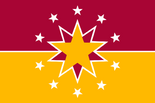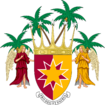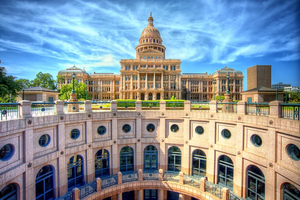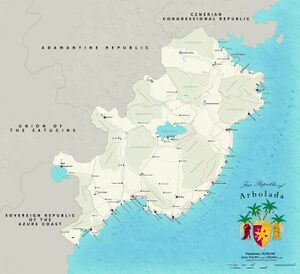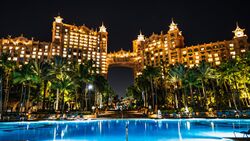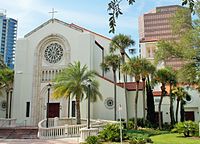Arbolada
This article is incomplete because it is pending further input from participants, or it is a work-in-progress by one author. Please comment on this article's talk page to share your input, comments and questions. Note: To contribute to this article, you may need to seek help from the author(s) of this page. |
Free Republic of Arbolada | |
|---|---|
| Motto: "Pro Deo et Patriae" "For God and Country" | |
| Anthem: Facing the Sun | |
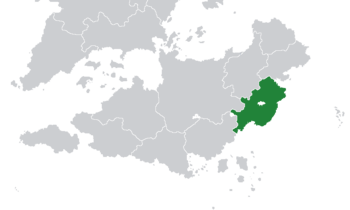 Location of Arbolada in Asteria Inferior on Kylaris | |
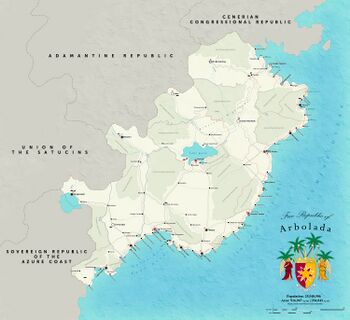 National Map of Arbolada | |
| Capital and largest city | Ponto Solar |
| Official languages | Luzelese, Weranian |
| Recognised national languages | Vespasian, Esmeiran |
| Recognised regional languages | |
| Ethnic groups (2020)National Population Census |
|
| Religion (2020)National Population Census |
|
| Demonym(s) | Arboladan |
| Government | Unitary multi-party presidential republic |
| Naomi Suzuki (PP) | |
| Henrique Barbosa (PP) | |
| Giovane dos Santos (DA) | |
| Adrian DeStefanis | |
| Legislature | Congress of Arbolada |
| Senate | |
| House of Deputies | |
| Independence from | |
• Declaration | 1784 |
| Area | |
• | 916,967 km2 (354,043 sq mi) |
• Water (%) | 2% |
| Population | |
• 2022 estimate | 26,000,000 |
• 2020 census | 25,948,906 |
| GDP (PPP) | 2022 estimate |
• Total | |
• Per capita | |
| GDP (nominal) | 2022 estimate |
• Total | |
• Per capita | |
| Gini (2022) | 40.9 medium |
| HDI | very high |
| Currency | Arboladan arbol (ABA (⍋)) |
| Time zone | UTC+15 (UTC) |
• Summer (DST) | Western Lumine Time |
| Date format | dd/mm/yyyy |
| Driving side | right |
| Calling code | +57 |
| Internet TLD | .ab |
Arbolada, officially the Free Republic of Arbolada (Luzelese: República Livre da Arbolada, Weranian: Freie Republik Arbolada) is a sovereign state in Kylaris. It lies on the eastern portion of the continent of Asteria Inferior, consisting of approximately 26 million people; over half of the population is concentrated along the coastline with the Lumine Ocean, with the rest dispersed in villages, small towns, and cities deep within the Arboladan interior. Arbolada, the seventh largest country on the continent, is bordered by Adamantina to the north, the Azure Coast to the west and Satucin to the east. Arbolada's capital city (and largest city) is Ponto Solar. This is alongside large cities such as Porto Andrés, Florestas Verdes, Forte João, Laranjal, Calusa, and Cabo Irmão. The most notable feature of Arbolada is Lake Karai, the largest on Asteria Inferior. Arbolada consists of a huge amount of different peoples, ethnicities, and races thanks to its diverse and racially inclusive history since its independence in 1784. The name Arbolada translates to "Land of Trees" in Esmeiran, the mother tongue of Arbolada's Paretian discoverer.
Modern humans arrived to the area of Arbolada approximately fifty thousand years ago; the Guaraní and Chanuche peoples settled the area around ten thousand years ago. These tribes would remain disparate and underdeveloped until the arrival of Paretian explorer Tadeo Mandujano in 1565. Seeking a region to stake for the Paretian crown not taken by other colonial powers, the Esmeiran explorer established the oldest settlement in Arbolada, San Felix (now Ponto Solar). After his death in 1580, the colony was organized into the Viceroyalty of San Felix, which grew to encapsulate most areas not occupied by other colonies or major native powers. Proselytization began under the actions of Solarian Catholic priests, converting many Guaraní tribes in the process as a means to gain a potent ally against their Chanuche enemies. With the conquering of these Chanuche tribes and the importation of slaves from Bahia, slavery commenced in the Viceroyalty, with thousands of slaves being fielded on plantations. Independence was achieved in 1784 as a result of the Arboladan War of Independence, waged by a coalition under General Juan Antonio Durán against the government of the Viceroyalty of San Felix and Paretia. He was subsequently elected the first President of the United Republic of Arbolada. By the 1800s political parties such as the Democratic Party formed. The United Republic would eventually be transformed into the modern Free Republic of Arbolada through the writing of the Constitution of the Free Republic of Arbolada, a revision of the United Republic's original constitution as a result of the White Troubles. Arbolada quickly became racially and culturally diverse with granted equality between all religions, races, and ethnicities. The Weranian Rush allowed for a flood of Weranian folk into the nation, and although it had caused the White Troubles, was later reconciliated by the efforts of the first Weranian president, Fynn Thalmann, through the Thalmann Plan. Following this, Arbolada experienced further prosperity and growth through the 19th century, ascending in political and economic power to be one of the most developed nations of Asteria Inferior until the Great Collapse of 1912. Facing an imminent domestic crisis, President Iago Varejão rushed multiple acts through Congress that helped nationalize key industries. However, in 1916, Congress issued the Emergency Governmental Authority Order that sought to fill the void of the 1916 elections and install a legally indefinite executive authority. General Maximiliano Silveira of the Arboladan Army was chosen, becoming the first and only Supervisor Temporary of the Free Republic — later earning (and embracing) the title of Caudilho.
Under the military regime of Silveirist Arbolada, multiple quasi-socialist policies would be implemented to prevent the breakdown of order (such as large-scale nationalization of industries) in addition to the harsh policy of the deployment of the Arboladan Armed Forces domestically. Silveira also rendered Arbolada as closed off from the rest of the world economically until 1929, where he discreetly aligned Arbolada with the Entente powers during the Great War. However, the loss of the Entente left Arbolada an international pariah state, and in late 1937 Silveira formally requested Congress to remove his powers in order to save his homeland from further distress. He later retired from the military in 1938 and retired to his estate near Lake Karai, staying there with his family until his death in 1949. Following the voluntary end of the military junta, newly-elected President Gabriel Nachtigall reversed many of the policies of the regime. However, under the administration of the charismatic Liberal Republican President Sean Seabra in 1950, the Red Troubles began as socialist revolutionaries rose within certain cities and parts of the Arboladan interior. This led to the election of the anti-communist Democrat Bernardo Bettencourt in 1952, who started the Arboladan Bush War. Despite losing the 1956 election to the Liberal Republican Byron Gomez, the latter's ineptitude in dealing with the crisis led to Bettencourt's re-election in 1960 under a more pacifistic premise, finally leading to the Sunshine Compromise with the socialists and starting the Sunshine Miracle.
With the Sunshine Miracle came a bountiful wealth of opportunities for Arbolada; presidents such as Abraham Blattner and Nikolai Vorobev fostered such growth for the benefit of the people through the 1960s and 1970s, and the election of the Democratic Paul Bacharach prevented another economic disaster from occurring in 1980. Under the careful hand of Bacharach, Arbolada underwent its largest economic boom, and as a result had the highest immigration rate in history from nations across the globe. The cultural scene of Arbolada during this time was seen worldwide, with the nation spawning famous genres such as Calusa bass and freestyle alongside several chart-topping dance-pop records. However, by 1991, Arbolada would fall from grace as a result of interior economic output stalling and the fall of the Arboladan arbol in value. This was compounded by the beginning of a massive cocaine epidemic in 1992 that saw thousands of deaths and injuries alongside the rise of major criminal organizations such as the Medeiros Cartel. However, the election of Democrat Raymundo Tomás would lead to his enactment of the eponymous Tomás Initiative, starting a war on drugs within the nation. Tomás's methods helped to clean up Arbolada and save it from further harm. By 2004, Arbolada's shifting crime rates and increase in immigrant violence lead to the election of President Lewis Jäger of the National Conservative Party of Arbolada, a party that had split from the Democrats in the 1980s. He would revive the Tomás Initiative and restrict immigration, in addition to promoting rural jobs to revive the interior's economy. His more unfavored actions included crackdowns on LGBT+ rights and restrictions on abortion. In 2012, executive power returned to the Democrats, who — under President Patrizio Gigante — capitalized on Jäger's successes to return the country to a stable and profitable state. This was accomplished by cleaning up the cities of crime and reviving the tourism industry. In 2020, the Democrats once more won under Reuben Schäffer, who sought to address the newfound crack cocaine epidemic and the rise of criminal syndicates once more in the nation as a side effect of the new economic boom.
Arbolada is a unitary presidential republic with three separate branches of government, including a bicameral legislature. It is a member of the Community of Nations, the Atomic Energy Commission, the Organization of Asterian Nations, and the Asteria Inferior Common Market. It is considered to be one of the world's largest multicultural countries in the terms of member cultures and peoples as a result of centuries of immigration. A liberal democracy, Arbolada ranks high in the human development index but nominal in income equality. It retains a universal basic income, publicly funded healthcare, and free education for all public education facilities due to policies enacted by presidents from the Social Labor Party or by other political deals. However, it also retains capital punishment, ranks low in LGBT+ equality, and has restrictive abortion rights.
Arbolada is one of the most developed nations in Asteria Inferior, and it is one of the most potent nations in the terms of its tourism industry thanks to its picturesque terrain, biodiversity, ecological regulations, and vibrant culture.
Etymology
The term Arbolada was coined by the Paretian explorer Tadeo Mandujano upon visiting the land in 1565, in his mother tongue of Esmeiran. Directly meaning "wooded", it implies Land of [the] Trees, and was named so due to the abundance of jungles and forests that Mandujano encountered upon his exploration journey.
History
Prehistory
The land that currently constitutes Arbolada has been a tropical domain for hundreds of thousands of years thanks to its proximity to the equator of Kylaris. This subsequently unlocked its biodiversity, with countless thousands of species of plants and animals evolving to call it home; and later contributing to the rise of pharmaceutical and agriculture successes in its modern history.
Tribal Arbolada
The tribes that would settle Arbolada originate from the migrations of the Chanuche and Guaraní peoples to Asteria Inferior, splitting into various individual clans and tribes as they dispersed throughout the confines of Arbolada. No one tribe would come to dominate the other for long, leading to countless centuries of small-scale warfare as tribes both fought against one another and against external pressures as a result of incursions from other, more powerful tribes within the continent. This "constancy" of war and lack of the development of civilization within Arbolada would contribute to the vulnerabilities of Arboladan tribes by the time of the arrival of Paretian conquistador Tadeo Mandujano.
Paretian colonization
Mandujano’s in-depth exploration of the region that he would christen “Arbolada”, or the land of trees, would later be reported to the Paretian crown and begin a process of colonization across the coastline of this newfound land. Happening concurrently with the onset of Etrurian and Gaullican colonization, Arbolada served as Paretia’s chief colonial outpost on the southern shores of Asteria Inferior, with the city of San Felix (later Ponto Solar) serving as its primary fort.
Paretian colonial administration gradually grew towards the interior of the continent in wariness of transgressing the coastal colonial properties of other empires. This prompted direct and constant contact with the inland Chanuche tribes, who had conflicted with the more coast-bound Guaraní tribes until the advent of Paretian colonization. Guaraní auxiliaries and Paretian conquistadors reinforced with homeland troops were able to wrest control over vital arteries of the interior over the course of thirty years, leading to eventual Paretian victory but the death of men such as Mandujano, who had fallen from a native arrow in battle.
After Mandujano died in 1580, the colony was formally reorganized into the Viceroyalty of San Felix. The viceroys in control of the colony were charged with maximizing the economic potential of the colony with what space was available, thus leading to the enslavement of tribes that had previously went against the Paretian colonial expansion. Allied tribes, mainly of Guaraní origin, were gradually subsumed from Catholic proselytization and the diffusion of Euclean culture and philosophy, leading to the birth of the first mestizos and castizos.
In 1590, the first Bahian slaves began importation towards Arbolada from slave markets based in Coius. Staffing the various plantations that dominated the midlands and portions of the coast, they gradually began to intermix with Chanuche slaves to birth the first pardo Arboladans. This slavery system would persist until the late 1700s, and eventually lead to a potent Bahian minority.
Prior to independence, the Viceroyalty focused on developing its coastal infrastructure, including the opening of rudimentary fishing industries. Arbolada also served as an important stop along the east-to-west and west-to-east Lumine Ocean trade routes, supplying foreign and Paretian ships with fresh supplies, slaves, and products to be sold across the world such as citrus, sugarcane, tomatoes, watermelons, cotton, potatoes, timber and exotic animals and plants or their products.
Independence
Independence for Arbolada was achieved in 1784 as a result of the Arboladan War of Independence against Paretia. A combination of factors including the successes of the northern Asterian War of Secession, brutal enslavement processes, increased taxation measures, exploitation of domestic resources for foreign markets, and the growing presence of peninsulares troops in the colony that disavowed the naturally grown nuances of Arboladan culture fostered between crioulos, castizos, mestizos, pardos, and natives all led to an explosion of anti-colonial violence as early as 1773. A combined, but individually autonomous, coalition of slave revolts, native attacks, and secessionist rebels rose in 1780 under the overall command of abolitionist and colonial military officer Juan Antonio Durán, committing to multilateral offensives against Paretian outposts along the Arboladan interior. The sudden fall of these outposts led to a direct Paretian military intervention that was ultimately defeated by the use of guerrilla tactics from rebel forces.
Achieving independence in the 1784 Treaty of San Felix, Arbolada initially existed as the United Republic of Arbolada under the First Constitution. However, the instabilities of the First Constitution would be felt over the coming decades, as much of the country existed as a fragile union of allied tribes, freedmen communities, and the dominant mercantile towns and cities of the coast. Durán was elected as the first President of Arbolada almost unanimously by the electorate of literate men, and he promptly moved to consolidate Arbolada through issuing new subdivision reorganizations and allotments of fair taxes and budgetary investments.
Durán’s presidential term ended in 1792, leaving the country much more developed than before as a Paretian viceroyalty. Although agricultural production significantly declined following independence due to the dispersal of freed native, pardo, and Bahian slaves across the country, Durán was able to move many back into paid farmwork through redirecting investments from the coastal cities to the interior. Although this soured his reputation to a degree with the white and mestizo/castizo populations, this helped ensure the political loyalty of the colored populations to the new Arboladan state. He also approved of the slow repair of Paretian and Arboladan relations through the Homeland Recognition Act. The true boons of this law would not come for decades as Paretia initially viewed all approaches with hostility and suspicion, but Arbolada’s disposition towards heightened trade with her mother country despite independence would help strengthen the Paretian cultures’ survivability within the nation to the present day.
The vice president that served under Durán for his first term, a mulatto by the name of Antonio Jesus Cueva, was elected in the 1792 presidential elections under his promises to transform the nation into a tropical haven for colored folk, while also ensuring the continuance of white and mestizo/castizo prosperity. His first move was to strengthen ties with the Solarian Catholic Church directly — as the state still had clear Catholic loyalties in government until at least the 1830s. Being a devout Catholic, Cueva also allowed the opening of several new hospitals and churches under Catholic administration through the interior, allowing healthcare and education under Catholic funding to be extended beyond the coast and raise up the majority-illiterate colored populations. Being elected again in 1796, the end of his administration in 1800 left Arbolada a much healthier and educated state, even if still heavily behind any Euclean nation or even behind some Asteria Superior countries.
However, Cueva’s clear Catholic loyalties had left a bad taste in the mouths of minority Amendist populations in addition to secularism proponents and those who still harbored native faiths. This led to the birth of the political party system, where the Cueva-Duránists would move to create the Democratic Party, the oldest political party in the nation, and their major opponents creating the New Arbolada Party, the ancestor to several modern liberal parties.
In 1800, the Democratic Party of Arbolada won the presidential elections under its candidate Gerard Arán, a white man of Gaullican and Paretian origin who was also a major merchant based in San Felix with Euclean connections. Although many in the New Arbolada Party disparaged Arán as having Gaullican and/or Paretian loyalties, President Arán continued the policies of his predecessors by starting the industrialization process of Arbolada. Using his mercantile connections, Arán was able to attract foreign investors from Werania, Gaullica, Paretia, and even some Northern Asterian nations such as Rizealand to begin opening manufacturing and industrial plants at reduced land prices through the Foreign Investiture Act. Arán made sure that this plan did not backfire by creating legal defenses for workers in what would be the first labor laws in Arbolada, ensuring a minimum wage for all workers regardless of race. His smart maneuvering of politics and commerce led to Arán winning the 1804 elections, placing the Gaullican-Paretian “Padrino de la Industria” in the crosshairs of the Weranian Rush.
Weranian Rush, White Troubles, and Birth of the Free Republic
In 1804, the first large waves of Weranian immigrants began arriving to Arbolada due to the various conflicts in Euclea and subsequent economic opportunities existing in the New World. Settling mainly within the Weranian Quarter in San Felix, they would straight away subsume the commercial power along the coastline in the coming decades, inevitably forcing native and Paretian cultures into the interior and starting the White Troubles.
The White Troubles were named so due to growing sociocultural unrest between culturally Weranian migrant populations and culturally Paretian native populations, both of which being almost all white and castizo/mestizo in origin. The divide between the coast and the interior was still wide enough for colored populations to avoid most of the problems that arose, sans for concurrent issues with natives clamoring for land that was at that time owned by Bahian, pardo, and mulatto communities.
Before Arán left office, he had made sure to organize the Guarda Nacional, or National Guard — the predecessor to the National Gendarmerie of Arbolada. The National Guard served as an auxiliary element to the still-novel Arboladan military, which at that time mainly consisted of militia units and a small, professional infantry corps.
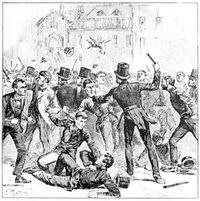
The 1808 elections became increasingly contentious, with the voterbase rapidly shifting in favor of the New Arbolada Party. Although the Democratic Party won, it was only slightly, with Joel Saldanha being elected on his promises to restore order to the situation on the coast. The San Felix riot occurred in 1810 as a result of direct confrontations between mestizos and Weranians on Ricardo Boulevard, which separated the Weranian Quarter from the rest of the city. Leading to over a hundred deaths and countless injuries as a result of fires breaking out on both sides of the avenue, President Saldanha ordered for the deployment of the National Guard into the city and subsequent declaration of martial law.
This rapid increase in violence matched a concurrent increase of violence between natives and blacks in the interior in what would be called the smaller Black Troubles. Although these smaller conflicts were still of a major concern to Saldanha, the growing problems in the coast were simply unacceptable as it could paralyze the economy of the entire nation. Thus, Saldanha moved in 1811 to organize an assembly of mestizo and Weranian community representatives in the city of Calusa. This assembly outlined the grievances of both communities in relation to each other and the government; seeing no end in sight to the immigration of the Weranians, Saldanha pushed out the Ley de Unidad de Población, or Population Unity Act, prior to the 1812 presidential elections. The act outlined total religious equality between all religions — a centerpiece of the later Second Arboladan Constitution — but simultaneously empowered the government with the ability to limit (not stop entirely) immigration through the employment of quotas.
In 1812, despite the positive work of the Saldanha administration, the New Arbolada Party won its first election under a firebrand politician of Weranian origin by the name of Fynn Thalmann. Thalmann was elected as a result of his campaign promises to bring “true religious and racial equality” that the Paretian and Bahian Catholics had been holding from natives and Weranians. Finding rapport with the native community and the novel immigrant communities that were not Catholic, he sought an end to the White and Black Troubles through the Thalmann Plan.
The Thalmann Plan, which was proposed to Congress in 1814, outlined a series of government and bureaucratic restructurings that would prevent further violence between populations. Primarily, it enshrined both Luzelese and Weranian as official languages of government, upheld the Saldanha administration’s quota law and total religious equality and solved the land issues between black Catholics and natives in the interior through the creation of native-only reservations that received government assistance in organization. Thalmann also committed to small-scale secularization of the healthcare system, in which the Catholic dioceses that administered the interior of Arbolada were blocked from opening more hospitals. However, to avoid Catholic ire, Thalmann also passed a protection act for the hospitals that already existed for decades, preventing them from further government impediment.
Despite Weranian immigration being quota-limited starting in 1812, their community nevertheless continued to grow. This ensured Thalmann’s re-election in 1816, where he worked on improving immigrant conditions until 1820 and opening the gates for a plethora of future immigrant communities to move into the country. From 1820 to 1848, the New Arbolada Party reigned over the country nearly unimpeded as a result of attracting a portion of the Democratic Party’s voterbase through improving the interior’s infrastructure at the behest of Bahians and natives alike; this was done through the administration of Thalmann’s protégés Johannes Schwarzfels, Marco Hertel, and Luis Gabasa. Under Gabasa, the Free Republic of Arbolada was proclaimed, replacing the United Republic’s previous constitution with one approved by Congress that held the plans of Thalmann and Saldanha in mind. The 1844 election was postponed by the Great Plant Pox of 1844, enabling Gabasa a temporary three terms to deal with the crisis. However, in the 1848 election, an unseen victory by the Democratic Party of Arbolada under Matthew Azevedo would prepare the nation for its first true round of industrialization beyond the few manufactories that existed.
President Azevedo ran under the campaign of industrialization; to bring Arbolada to an economic and developmental parity with not only the nations of Northern Asteria, but even that of Euclea itself. Knowing that such a feat could not be done in one term, let alone two, Azevedo instead emphasized his administration’s dedication to preparing the nation for such a brutal regimen, beginning with tactics like President Arán in attracting foreign investments. President Azevedo also opened numerous mining operations in the interior that would export their products either abroad or to manufacturing centers in the midlands of Arbolada, expanded agricultural-related manufacturing industries such as textiles, and created low-tax enticements for foreign private entities to enter the country.
First economic booms
With Azevedo being elected to a second term and continuing his plans, he left office in 1856 with a promise that his successor would continue his plans of industrialization if elected. This successor was the first Bahian-Arboladan president by the name of Horacio Sallent. Despite receiving initial suspicions due to his origins in a poor Bahian-Arboladan neighborhood within the interior city of Ocorate, Sallent proved his worth by starting an urban industrialization and expansion plan that piggybacked off Azevedo’s work. Many Weranian and other immigrant communities that stayed in the coastal cities without work had found new opportunities in the factories and farms that Sallent opened, buying land off the white and castizo/mestizo landowners in the process through eminent domain. The coastal cities swelled in population and subsequent power as a result through the eight years of Sallent’s tenure, and by 1864 the newly rechristened capital city of Ponto Solar had reached a population of nearly 180,000.
Even with Sallent’s economic developments, the country was still struggling to match the pace of industrialization that occurred in more northerly nations. Part of the reasons for this was the concentration of economic and political power on the coast, where the Catholic white and mestizo/castizo populations held the bulk of the financial and commercial power. Thus, in 1864, the New Arbolada Party won under a campaign to further equalize the distribution of this party under President Sandro Speidel. Speidel began a four-year transfer of economic power towards the interior with the further opening of new farming and mining centers, including the growth of the city of Laranjal into becoming the third largest city in the nation behind the coastal urban centers of Cabo Irmão and Ponto Solar.
Speidel was re-elected in 1868 but was immediately beset upon by a crowd of mestizos, Paretian whites, and castizos armed with pipes and clubs that pushed past his security escort. Injured to the point of a coma, his Vice President was selected as the newfound president until Speidel could recover. This man, a mestizo by the name of Lukas Leñero, would immediately move towards stalling further interior development efforts to deal with the growing anger in the white and mestizo community. Instead, he balanced Parham’s industrial advancements, including opening several new ports and harbors for the coast in tandem to building the first train infrastructure along the coast, connecting Ponto Solar to coastal cities such as Cabo Irmão, Florestas Verdes, Forte João, Terrier, Porto Andrés, Antony, Calusa, and Matusalém.
Speidel woke up from his coma with significant intellectual degradation, thus rendering him ineffective for further administration. Leñero lost the 1872 presidential elections to the part-Gaullican Markel C. Charpentier of the Democratic Party, who turned back to del Valle’s original intentions of rapid industrialization. Pollution under Charpentier increased in both the air and sea, but Arbolada was quickly developing along its path to achieve parity with various modernizing nations. Inland commercial relations were also fostered under Charpentier with nations such as Adamantina, the Azure Coast, Gapolania, and the western South Asterian nations, putting aside past territorial disputes in favor of economic prosperity.
Following Charpentier’s tenure ending in 1880, the Democratic Party continued to win elections under mestizo president Saul Sáenz, mulatto Ferdinand Götz, and castizo Miguel A. Ascaso. However, in 1904, control was wrested into the hands of the novel Social Labor Party, a social democratic political party that arose from the collapse of the New Arbolada Party in the 1890s. The victor from this party, President Patrick Vahlen, won as a result of the wave of left-wing politics that was flooding into the country from Euclea. However, since this left-wing political movement was associated with white influence, this victory was seen as a fluke that would not be repeated following Vahlen’s administration until much later. Regardless, Vahlen’s social improvement policies included increased funding to healthcare industries, improving workers’ conditions, the formation of a welfare system known as Vahlen Welfare, and women’s suffrage movements being answered with the right to vote, own property, and have equal economic and political opportunities.
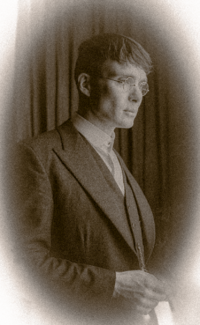
Following Vahlen’s short tenure was the return of softer left-wing politics under the Liberal Republican Party and their candidate in 1908, Oscar Magalhães. Promising not to dismantle Vahlen’s work, they also gave into capitalist influences of the nation further with the opening of a new tourism industry that took advantage of the wilderness of Arbolada’s wide interior and large coastline. Magalhães’s administration would be credited for starting Arbolada’s foray into tourism that would last into the present, but for the time would be stunted by the arrival of the Great Collapse in 1913.
The Great Collapse
The Great Collapse impacted Arbolada fiercely in 1913, only a year into the tenure of President Diego Varejão of the Democrats. His immediate reaction to the crisis was to ensure some form of economic stability even though collapses in raw material prices were wrecking the nation, and this was accomplished through the eventual draining of the coffers of the state to keep vital industries afloat to feed and clothe the people. With skyrocketing unemployment as a result of foreign-invested factories closing down, Varejão also rushed the Emergency Employment Act through Congress, allowing the state to employ people directly through the National Rehabilitation Corps, or NRC, an arm of government dedicated to maintaining infrastructure and protecting the people both security-wise and health-wise. At this time, the National Gendarmerie was formed from the National Guard to increase policing authorities to a national agency.
Although Varejão’s policies brought initial relief, it was only a matter of time until the façade collapsed under the weight of government debt. On the eve of the 1916 election, congressmen drafted and legislated the Emergency Governmental Authority Order that was subsequently approved by the Supreme Court of Arbolada; this order allowed executive authority to be delegated to a chosen individual by Congress and with approval by the Supreme Court in the event of impending national disaster. They chose General Maximiliano Silveira of the Arboladan Army, turning Arbolada into a voluntarily elected military dictatorship. Silveira was thus given the formal title of Supervisor Temporary, but instead adopted the pejorative title of Caudilho himself after being called such by critics.
The Caudilho, despite being a military strongman, was not chosen simply for no reason by Congress. Silveira had been one of the few non-socialist supporters of the Vahlen administration due to its dedication to the people, and he himself was known as a populist, if a bit jingoistic. Already being known as a people’s man and with a strong image, Silveira moved to consolidate his power by declaring a nationwide curfew and enforcing it through the domestic deployment of the Arboladan military alongside local police forces and the National Gendarmerie.
The Silveira regime also cut off all exportation of essential resources, such as foodstuffs, and raised tariffs on non-essential resources being imported into the country. Moving immediately towards ensuring self-sufficiency in the wake of global economic disaster, Silveira nationalized the bulk of the production sector and redirected all products towards the domestic market. With the fall of the Arboladan arbol in value, Silveira instituted price controls on essential items such as food and water, clothing, and medicine.
In 1919, a massive demonstration was organized across the nation by reactionary elements of Arboladan government and society that opposed the rapid nationalization of various industries, ranging from previously wealthy white and mestizo/castizo families to disenfranchised natives and blacks whose lands were seized to expand nationalized industrial capacities for the “betterment of the nation”. This coalition indirectly threatened to plunge the country into a civil war, and several bloody clashes occurred between Silveira’s troops and the protestors in cities such as Ponto Solar and Laranjal.
The Golden Capitol building, home to the Congress of Arbolada in Ponto Solar, was stormed by protestors on July 11th, 1919 in what would be known as the July Capitol Siege. A combination of black, native, and white protestors fortified the structure and held out against national gendarmes and police until the arrival of military troops and armor that led a two-day siege and eventual liberation of the structure. Dozens of protestors had been killed and dozens more injured and arrested, alongside the death of several police officers and two soldiers. This clear sign of growing unrest did not perturb Silveira in the slightest, and his military regime would continue to rule the country until 1927 and the advent of the Great War.
During this time, the Caudilho also permitted the expansion of the Solarian Catholic Church once more, but only under humanitarian motives. This allowed Catholic programs to run concurrently with government relief programs, including the opening of new orphanages, soup kitchens, schools, and hospitals.
The Great War
The outbreak of the Great War in 1927 occurred under Silveira Arbolada. Silveira at this time was still under congressional charter to rule the country in place of a President, and as such, he saw it fit to control Arbolada’s approach to the war himself. Sharing a border with the Gaullican-oriented Satucine state, Silveira did not want to pull Arbolada into a senseless war in its northern frontier when he was already so close to pulling the country out of the muck of economic depression.
Initially, the Caudilho declared neutrality of the Arboladan state to any new rising global conflict. Nevertheless, he was reported espousing positivity to the ideology of Functionalist Gaullica, even if he saw it “personally incompatible with Arboladan culture”, and with initial Entente victories, he moved Arbolada’s position to non-belligerency, beginning the first economic interactions of Arbolada in decades with various Entente powers in 1929.
During this time, Silveira permitted the expansion of the National Gendarmerie to supplant the void left by army units moving to Arbolada’s borders in anticipation of possible incursions from any nearby power. The Arboladan army was the largest in history during this time, numbering nearly 300,000 soldiers strong, and Silveira had spoke of a “Grand Arboladan dream” to unite the Southern Asterian continent. Even so, this dream never came to fruition, as the war turned against the Entente and forced Silveira to once more return to true neutrality by 1931.
With the war’s end in 1935, Arbolada was left in a precarious diplomatic and economic position. Its trade partners had been effectively rendered defunct, and its implicit support for the Entente had left many commercial opportunities moot post-war. This thus forced Arbolada to not enter the Community of Nations until 1942 on the grounds of Entente support.
Recovery and redirection
In order to prevent a Community of Nations intervention in the homeland that he fought and bled for, and to save face for his country in the international community, Silveira made the harsh personal decision to declare the end of his military regime. He formally requested Congress to remove his charter of control of the country, and he thusly retired from politics. In 1937, he retired from military activities as well, returning to his villa near Lake Karai to spend the rest of his days in peace with his wife and family. To this day, he is remembered for allowing Arbolada to survive the roughest of economic times with a firm hand, and his funeral in 1949 was spectated by millions of Arboladans in sorrow and was attended by future presidents Gabriel Nachtigall and Sean Seabra.
The 1936 elections won strongly in favor of the Democratic Party, with Gabriel Nachtigall taking office that year under a campaign to de-nationalize nonvital industries and return Arbolada to commercial prominence. The Nachtigall administration returned several tens of thousands of acres of land to native and black communities and restored ownership of several businesses and corporations that were nationalized on the coast to white and castizo/mestizo families. He was subsequently re-elected in 1940, where he spectated the anticipated entry of Arbolada into the Community of Nations in 1942 and rebuilt portions of the tourism industry lost in 1912. Before the 1944 elections, he also began Arboladan support for the Community of Nations in their intervention in the Solarian War.
In 1944, Sean Seabra, a charismatic Bahian-Arboladan, was elected as a part of the Liberal Republican party on a platform of rapprochement with the international community. Elected for two terms, he formed strong bonds with Euclean, Bahian, and Asterian nations, inviting them to trade with Arbolada and encounter the “unique Arboladan experience”. Seabra sponsored multiple Bahian cultural projects, including the creation of the Bahian-majority coastal city of Nuevo Bahia, and cooperated with white and mestizo/castizo families to grow the tourism industry further.
The Red Troubles

Towards the end of President Seabra’s tenure in 1952, socialist sentiments were rising across Arbolada as a part of a second, more violent “red wave”. Although Seabra tried to stop the violence from rising further, talks of revolution were spreading across the Free Republic, and the risk of a civil war plunging Arbolada into war and destitution were all to real. Yet, the memory of the Caudilho Silveira still existed, and even though Silveira was seen ultimately as a positive force, such concentrations of power could not be issued again in the face of a liberalizing world order that only recently forgave Arbolada for their decisions.
In 1952, the fiercely anti-communist Democrat Bernardo Bettencourt was elected, with the coastal elite having fears of potential revolution being a good source of his campaign funding. Bettencourt immediately overstepped Seabra’s previously timid measures and deployed the Arboladan military and National Gendarmerie into left-wing hotbeds in the interior, sparking the Arboladan Bush War that raged from 1952 to 1960. This low-level conflict, although not a true civil war, nevertheless lead to the deaths of thousands of civilians, police, military troops, and rebels, and even consumed a portion of Laranjal in the conflict. Several protests and riots by anti-war activists and left-wing activists costed Bettencourt the 1956 election, losing to the Liberal Republican Byron Gomez.

President Gomez immediately floundered the war effort, ordering the retreat of gendarmes and soldiers despite the clearly identified threat of resurgent socialist militancy. This led to entire portions of the interior jungle falling once more to socialist rebels and his popularity tanking. Rather surprisingly, Bettencourt won the 1960 election under a new, reformed campaign of “diplomatic renewal”, reneging on his past actions and reaching the Sunshine Compromise. This compromise instituted a universal basic income for all Arboladans, expanded union rights, and significantly reduced tuition for major public Arboladan universities in exchange for disarmament of socialist rebels and the arrest of some of its most noted offenders.
The Sunshine Miracle
Although Bettencourt is seen with mixed reputation due to his first term’s firebrand approach that started the bush war in the first place, his ability to correct President Gomez’s ineptitude and form the Sunshine Compromise was a key factor in the start of Arbolada’s Sunshine Miracle. Thus, he is seen often moderately in modern day politics.
The Sunshine Miracle is a term used to refer to the start of Arbolada’s economic growth that has generally continued to the present, with exception to a decline between 1991 and 2001. This Miracle was as a result of Arbolada finally achieving political and social stability, allowing effort to be redirected towards infrastructure development and upgrading and the start of Arbolada’s service and tourism industries. Although some historians distaste to mention it, the Sunshine Miracle may have roots in Silveira’s survivalist economics, which built a base for Arbolada to expand on.
The end of Bettencourt’s second term in 1964 led to the election of Abraham Blattner of the Libertarian Party. Blattner won through his campaign of promising economic revitalization that carried the momentum of the rising state of Arbolada, and he sought to accomplish this through increasing the freedoms of private enterprises. Risking another socialist uprising only four years after the end of the last, Blattner navigated such treacherous waters through simultaneously declaring that he would not dismantle any previous policies instated by the Sunshine Compromise. His actions allowed a blooming of immigration of both people and companies alike to Arbolada, including an explosion of Coian populations from Senria, Shangea, and the region of Satria. He welcomed these migrants with open arms, and was seen by many within the Libertarian Party as betraying his original libertarian sentiments. To save face to his party, he pushed through the Private Corporate and Personal Tax Benefit Act, decreasing both corporate and personal taxes to counterweigh profit generation from industries still under Arboladan nationalized control. Blattner’s acute balancing of party politics and the desires of the Arboladan population won him the 1968 election, and his tenure ending in 1972 subsequently matched with the steady ascent of Arbolada in both Human Development indices and GDP.
The 1972 elections saw the rise of Nikolai Vorobev, a charismatic Arboladan of Metyso origin from Vinalia who ran under the Liberal Republican Party. Being from a more conservative wing of the party, his tenure ensured that the country ran smoothly and attracted as many businesses as possible from abroad. In addition, Vorobev also sponsored the rise of Arboladan corporations, such as the first cruise and air lines to service the country (particularly Arbolada Air and Elysium Cruiseworks). He was re-elected once more in 1976 and supervised the construction of the Interprefectural Highway System, finally linking all the interior, midlands, and coastlands under one ground-based transportation network. Before he ended his term in 1980, he approved plans for expanding rail networks in the country to accompany the highway system.
1980s economic boom
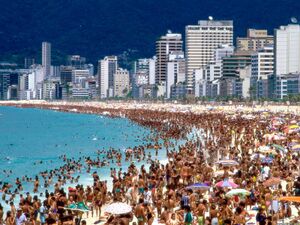

In 1980, a smaller recession occurred that briefly stalled the Arboladan economy under the presidency of Paul Bacharach, a Democrat who previously served as the prefect of the Florestas Verdes prefecture, as a result of global economic perturbances influencing the home market. To prevent the rise of another caudilho or the start of another domestic crisis, Bacharach immediately moved to briefly provide government assistance to all domestic corporate entities and a degree of financial assistance plans to foreign enterprises who wished to continue business in Arboladan territory. Although the arbol dipped in value, it had gradually recovered by 1982, and the Arboladan economy rebounded by 1985 to begin its meteoric ascent under Bacharach’s second term.
A new migrant boom compounded this economic ascent, with peoples from all over the globe finding homes within the country. This lead to further growth of cities across Arbolada and the establishment of the Florestas Verdes-Ponto Solar-Calusa metropolitan area with an accelerated population growth.
Several new neighborhoods grew in these cities from older immigrant communities, such as the Shangean and Senrian communities blossoming to form “Shangeatowns” and “Senriatowns”, respectively. Immigration from Bahia, Rahelia, and Satria enriched the coastal cities further during the period of decolonization. Some violence rose during this massive spike in immigration, such as between Bahians and Senrians, but this would not arise again until the start of the Arboladan decline in 1991.
The 1980s are often seen as the apex of Arboladan culture, with a plethora of music, art, theatre, and film being made by novel and established artists alike. Arbolada itself is most popular for spawning Calusa bass, freestyle music, and dance-pop tracks that resounded across the globe in clubs and the radio waves.
In 1988, Luiz Brandão Kimura was elected as a member of the Social Labor Party, and was of Senrian and Luzelese ancestry. Many would blame the onset of the Decline on Kimura, as he was incumbent during its start and tried pushing a bill for free private university tuition, but supporters claim that his work softened the blow of the impending slump.
1990s economic decline
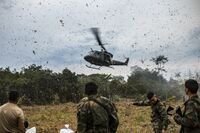
In 1991, during the midst of President Kimura’s administration, Arbolada suffered a massive slump in its economy as a result of the fall of the arbol’s value and economic output in the interior stalling. Ending the “Sunshine Miracle” with a whimper, the decline saw Kimura attempting to abate the economic fall through price controls and minor nationalization of industries that destroyed his chance to win the 1992 election cycle. Raymundo Tomás, a Bahian-Arboladan of the Democratic party, would win against Kimura’s re-run and other candidates, and would attempt to alleviate most of the issues that Arbolada would come to face from both external and internal sources.
The first cocaine epidemic struck Arbolada this time, with the drug proliferating throughout the coastal cities and later into the rest of the country. Being sourced into the country from the rest of Southern Asteria by drug traffickers primarily through the sea, Tomás would increase funding to the naval wing of the National Gendarmerie and the military’s navy as well, ordering for a cooperation to attack drug trafficking routes under the Tomás Initiative. He also redirected funding from infrastructure development to the police, increasing their militarization and directing them into inner cities in raids against drug dens.
His strong hand against drugs would be balanced by his investment into healthcare, increasing support for drug treatment and rehabilitation centers. His re-election in 1996 would continue this drug war until 2000, with important milestones such as the capture of drug kingpin Jose Zamorano of the Medeiros Cartel and its subsequent destruction.
Modern Arbolada
Arbolada would enter the modern age under Liberal Republican and castizo Sotirian Javier Albacete, who was elected in 2000. Albacete softened the harsh nature of the Tomás Initiative and also sponsored the increase in technological innovation and infrastructural development for Arbolada, completing various rail lines originally planned by President Vorobev. By the end of his term, the economy was restored, but still suffering from major crime throughout the nation. He would keep police investments high, but also redirect investment from the military towards education and towards the Albacete Education Reform that sought to increase the quality of public schools as a bid against crime.

By 2004, he was replaced by a surprise victory from the National Conservative Party, a faction split from the Democratic Party. Under the national conservatives was the far-right President Lewis Jäger. The Jäger administration would revive the Tomás Initiative, and to stop immigrant violence, place high restrictions on immigration quotas and the naturalization process. Overpopulation of cities was beginning to be an issue, and Jäger sought to solve this by promoting rural jobs and infrastructure that would also hopefully revitalize the slumping agricultural market. It was a success, and Jäger would see a second term until 2012 where he would bring economic favoritism to native businesses, crackdowns on LGBT+ rights groups, restrictions on abortion, and further sponsorship of rural businesses primarily ran by Bahio-Arboladans, pardos, and native Arboladans.
Despite the National Conservatives existing, the Democrats nevertheless won the 2012 elections under Patrizio Gigante. Gigante’s platform was to begin the restoration of Arbolada to the quality of the country under the Sunshine Miracle, and this was to be done by cleaning up the coastal cities of crime and to revitalize the tourism industry. Millions of arbols were invested into municipal police departments, tourism companies, and water and sanitation departments, leading to the resurgence of Arboladan tourism by 2014 and the proliferation of resorts, hotels, and casinos across the nation. That year, Gigante also endorsed the expansion of cultural programs celebrating the “unique Arboladan experience”.
Gigante was re-elected in 2016 and switched his platform towards strengthening other components of the service industry, such as the financial sector. Downtown Ponto Solar was revitalized as a major financial center, with the completion of the largest skyscraper in Arbolada, the Sunspear, that stood at 620 meters in height.
The 2020 election saw the victory of the Democrats again under Reuben Schäffer, who sought to address the newfound crack cocaine epidemic and the rise of criminal syndicates once more in the nation as a side effect of the new economic boom. His first two years have been marked by a mix of successes, such as the grand re-opening of the expanded Ponto Solar International Airport and Harbor, but also with failures, such as the 2021 North Florestas Verdes Massacre perpetrated by a lone wolf terrorist.
In late 2022, the Arboladan Alliance for Progress launched an injunction against Schäffer's administration, claiming voter fraud in numerous prefectures, namely Laranjal and Colina Áspera. Approved by the Supreme Court, snap elections were scheduled for January of next year; in a surprising turn of events to political forecasters, the victor of the impromptu election was announced to be the Prosperity Party, under Naomi Suzuki in February. In order to resist majority votes against her party's policies, President Suzuki formed a coalition with the Democrats; this prompted major backlash from the left.
Geography
The geography of Arbolada is defined by three main regions of the country: the highland ands midlands of the interior and the Lumine Coastal region. Maritime limits are shared with the Azure Coast and //TO BE ANNOUNCED//.
Arbolada is bordered to the north by Adamantina, to the west by Satucin, to the southwest by the Azure Coast, and to the south by //TO BE ANNOUNCED// through maritime territories. It lies between latitudes //TO BE ANNOUNCED//°N and //TO BE ANNOUNCED//°S, and between longitudes //TO BE ANNOUNCED// and //TO BE ANNOUNCED//°W.
The main rivers of Arbolada are the Nadiz, Karai, Cerúleo, and the Luville.
Climate
The climate of Arbolada is defined by a tropical biome, with much of the country under tropical rainforests and a smaller degree of mountain climates. There are approximately three natural regions that depend on altitude, temperature, humidity, wind, and precipitation.
Due to lying on the equator, there is little variation in regards to daylight hours throughout the year; as a result, sunrise and sunset almost always occur at 6:00 a.m. and 6:00 p.m. respectively.
Environment
Biodiversity
Politics
Government
The government of Arbolada is traditionally defined as a unitary multi-party presidential republic. The country was originally declared in 1784 under the Treaty of San Felix as the United Republic of Arbolada; however, following the revision of the first constitution in 1844, the Constitution of the Free Republic of Arbolada under President Luis Gabasa outlined a new name for the nation in alignment with the government's focus on liberty. Due to being a multi-party state with a healthy political discourse, the government has shifted constantly from being left-wing to right-wing throughout history; even so, it still often comes under scrutiny as a result of coalition governments often arising in times of high political diversity.
Parties and elections
The Free Republic of Arbolada has operated under a multi-party system since 1800. For almost all levels of government, primary elections are held for the nominees of various political parties in their bid for general elections. Multiple political parties exist in Arbolada, with the oldest surviving party being the Democratic Party founded in 1797 for the 1800 presidential elections. The president and vice president alike are elected by a first-past-the-post voting system, but the bulk of political positions throughout Arbolada's prefectures and legislature are elected through proportional representation voting. This has led to presidential dominations in the past, such as with President Lewis Jäger, who used his ability to strong-arm Congress into revitalizing the Tomás Initiative.
In Arboladan political culture, a plethora of major political parties cover nearly ever corner of the traditional left-right political spectrum. The National Conservative Party is considered far-right, the Democratic Party center-right, the Prosperity Party centrist, the Liberal Republican Party center-left, the Green Party and the Social Labor Party left-wing, and the People's Socialist Party far-left. Even so, due to the nature of proportional representation in Congress and a healthy multiparty environment, many smaller political parties have risen to address specific issues or complement other political parties in more nuanced manners. These include the Libertarian Party and the quasi-functionalist and neo-Silveirist Traditional Worker's Party, the Sotirian Democratic Union, the Democrat-offshoot and right-wing Horizons Party. The coastal areas of the country are considered to be more liberal than the interior, which has a conservative or socialist disposition from prefecture to prefecture. Although being considered one of the most democratically diverse nations in Asteria, the refusal of government to debase the precedent for the 1916 Emergency Governmental Authority Order has demoted Arbolada in the eyes of some experts.
Prosper Naomi Suzuki, the winner of the 2023 snap presidential elections, is currently serving as the 34th President of Arbolada and as the first female president of the nation. The Senate is lead by Vice President Henrique Barbosa, and president pro tempore Vinícius Antunes. Leadership in the House of Deputies of Arbolada includes House Speaker Giovane dos Santos, a Democrat.
In the 119th Arboladan Congress, the House of Deputies and the Senate are under the control of a coalition government between the Prosperity Party and the Hearth and Home Alliance, a political alliance between right-wing and center-right political parties, and chiefly headed by the Democratic Party.
Foreign relations
Arbolada is a current member of the Community of Nations, and joined the organization in 1942. Delays in joining the CN was as a result of Arbolada's alignment with the Entente during the Great War and its subsequent post-war isolation. The nation is also a founding member of the Asteria Inferior Common Market and Organization of Asterian Nations.
Since independence, Arbolada has strived to maintain positive relations with its geographic neighbors and its homeland of Paretia, even despite its violent independence war from the latter. Due to its position on the eastern coast of Asteria Inferior, it also maintains strong trade relations with Coian nations such as Senria and Shangea.
Military
The executive branch of government is charged with managing military matters of the nation, with the President of Arbolada being the commander-in-chief. Day-to-day operations of both the Arboladan Armed Forces and the National Gendarmerie are under the management of the Department of the Military. Currently, Arbolada has 84,000 active servicemen and 31,000 active personnel. In 2020, approximately 2% of the national GDP went towards military expenditures.

The Arboladan Armed Forces are split into three branches: the Arboladan Army, Arboladan Air Force, and Arboladan Navy. Each individual branch has its own dedicated intelligence agency independent of the Domestic Security Service and Special Intelligence Service.
Intelligence
Law enforcement and crime

There are hundreds of law enforcement agencies active across Arbolada, ranging from local police departments and sheriff's offices to prefectural police forces and the National Gendarmerie. Intelligence against crime and terrorist activity is provided by the Domestic Security Service, or DSS. In the terms of the judiciary, prefectural courts handle most criminal matters, whereas the national level employs circuit courts and the Supreme Court.
Capital punishment is legal in Arbolada and been so since its founding, being administered for certain felonies and crimes against the state in both civil and military terms. The last execution handed out was on Philbert Boucher, a serial killer that operated in the Laranjal prefecture, delivered by firing squad from national gendarmes in 2014.
Since the start of the 20th century, Arbolada has become a hotbed of organized crime as a result of large-scale waves of immigration in addition to the amount of revenue that could be made in the coast and interior alike. Several criminal networks, some of even international scale, inhabit the nation and contribute to the ongoing crack cocaine epidemic.
Administrative divisions
Arbolada is divided into 20 prefectures and one capital district which is officially treated as its own prefecture. Prefectures are subdivided into parishes, which are further subdivided into rural corregiments or urban municipalities. Each prefecture has its prefect and subsequent government installed through direct election every four years, with the same being true for corregiments or municipalities and their mayors and councils.
Rural towns and villages within a corregiment are conferred the choice to have popular assembly by law. However, city districts and neighborhoods within a municipality are granted submayors and subcouncils.
Territorial disputes
Largest cities
Economy
Arbolada was historically an agrarian until until the early 20th century. Although steps to industrialization commenced in the early 19th century under Arán, domestic sociocultural conflicts and various economic troubles would bar Arbolada from properly industrializing alongside the rest of Euclea and Asteria Superior. Currently, the economic production of Arbolada is geared towards foreign market exports as a part of economic globalization, with domestic consumption being largely met by home industries or through specific import policies.
The financial sector of Arbolada has skyrocketed since the Sunshine Miracle, with the formation of the Arboladan Stock Exchange through the mergings of the individual exchanges of Ponto Solar, Porto Andrés, and Florestas Verdes.
Currently, government expenditures account for approximately 44% of the economy, with external debt accounting for 36% of the GDP. The unemployment rate in Arbolada is currently 3%, but has seen an uptick as a result of the crack cocaine epidemic and subsequent despoiling of several rural and urban communities.
Despite large government spending on welfare and other derivatives of social insurances, 13% of the population is considered to be under the poverty line, with 5.7% being considered in "extreme poverty". Criticisms from the left have been levied at its recent ineffectivities as a result of right-wing administrations' cutbacks, whereas criticisms from the right have been levied at how the system has "yet to address persisting issues".
Economic sectors
Agriculture and mining

Industry
Services
Science and technology
Tourism
Arbolada has been a traditional spot of tourism for at least two hundred years, with wealthy Eucleans and northern Asterians visiting the country and either renting or buying properties in the territory (particularly along the coastline). Tourism accounts for around 22% of the national GDP through annual earnings of around $100 billion and accounts for nearly 20% of all foreign exchange receipts. Although Arbolada is not wholly dependent on tourism for its economy, its reliance on such an industry has been steadily growing ever since the administration of Oscar Magalhães and the resumption of international accessibility after the end of the Silveira regime in 1939.
With the revitalization of tourism under Gabriel Nachtigall and Sean Seabra, tourism has helped to boost the overall growth of Arbolada's economy. It allowed for the creation of thousands of job opportunities in direct association with tourism in addition to thousands more for jobs indirectly associated with tourism (such as manufacturing). The first true tourist resorts were open in 1952. Tourism has also been one of the largest individual source of foreign currencies. As of 2022, over 200 all-inclusive resorts and nearly 3,000 hotels and motels exist across Arbolada, offering a combined amount of nearly 700,000 rooms that accommodate over hundred million tourists annually. Over one million Arboladans currently work in some form within the tourism industry.
According to the Department of Tourism, over one billion tourists had visited Arbolada between 1940 and 2022. Various beach towns and resorts are popular tourist destinations, especially with the advent of winter and spring break. In 2004, around twenty six million tourists visited Arboladan beaches, bringing nearly $26 billion.
Amusement parks near Lake Karai attract a large amount of annual tourists. Various national parks and environmentally protected areas also attract tourists to the country.
Arbolada has multiple heritage sites, ranging from cathedrals to protected native structures.
Visitors
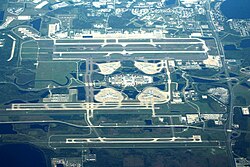
Those visiting Arbolada do not have to apply for a visa before their arrival no matter the country of origin; however, they must have a valid passport, a proof of onward travel, and proof of enough currency to be self-sufficient while in Arbolada.
In the modern day, most tourists arrive at either Ponto Solar International Airport, adjacent to the capital Ponto Solar, or Laranjal International Airport, near the major inland city of Laranjal. The airports are served by flights from //TO BE ANNOUNCED// and other major airports in Asteria Superior and Inferior, as well as charters from Coius and Euclea. Many air routes are serviced by Arbolada Air, a state-owned airline corporation dedicated to fostering air travel into the nation.
Trade
Arbolada is bountiful in natural resources, and a significant portion of the economy not derived from the service industries are a direct result of Arboladan exports. Arbolada's main exports include agricultural products, food products, metals, pharmaceuticals, textiles and fabrics, clothing and footwear, glass and glassware, industrial distillation products, furniture, and machinery. The country's principal trading partners are //TO BE ANNOUNCED//.
Transportation
Transportation in Arbolada is regulated under the Department of Transportation. Arbolada has one of the most developed intranational railway networks in Asteria Inferior, with practically all utilizing standard gauge. Coastal railway networks primarily prioritize passenger traffic through the state-owned Arbotrak corporation, whereas freight companies dominate rail lines connecting the interior to the midlands and coast.
Personal transportation is mainly though the use of automobiles, but many cities and settlements throughout Arbolada have been constructed to encourage walking for its civilians.
Arbolada's civil airline industry is half-dominated by Arbolada Air, a state-owned company, and almost all major airports in the country are publicly owned. Arbolada hosts one of the busiest airports in Asteria Inferior, Ponto Solar International Airport.
The country serves also a major stop and destination for both maritime freight and transportation, with the harbors of Porto Andrés and Ponto Solar being some of the busiest. River transportation is also common through the use of ferries.
Energy
The bulk of electrical production in Arbolada (approximately 57%) is from renewable energy sources such as wind power, geothermal power, solar power, and hydroelectricity. Under Gigante, the Arboladan green economic index rating skyrocketed through his renewable energy plan. The rest of the energy in Arbolada is supplied through nuclear power (around 33%), with only 10% coming from fossil fuel sources (primarily oil and natural gas).
Foreign employment
Demographics
Languages
The two official languages of Arbolada, following the formation of the Free Republic via the Thallmann Plan, are Luzelese and Weranian; however, all government activities are conducted in Luzelese, with Weranian only being used in certain prefectures and districts that have significant Weranian-descendant populations. More than 59% of the total population of the country are multilingual, speaking Luzelese and Weranian in addition to any other languages at home. 25% only speak Luzelese and 9% only speak Weranian, displaying monolingualism. The remaining 7% speak only their non-official languages at home — this is mostly seen within certain native Arboladan communities or in immigrant neighborhoods, specifically those with a large amount of illegal immigrants or temporary workers.
In total, approximately 93% of the country speaks an official language of the Arboladan government. It is estimated that approximately 80% of the nation is competent in at least Luzelese, with around 60% competent in at least Weranian. These statistics, gained from individual local censuses over the last two decades, are not reflected in information extrapolated for the modern 2020 census statistics.
Two national languages exist in subordinated positions to Luzelese and Weranian within Arbolada; this includes Esmeiran and Vespasian due to proximity to Vespasian-speaking countries and harboring small, but historical Esmeiran minorities.
Ethnic groups
Ethnic distribution in Arbolada (2020 Census)
Arbolada does not take census data on the ethnic origins of a citizen, as it is seen culturally as taboo for the government to collect. Nevertheless, it is a cultural custom for one to proclaim themselves as their "ultimate" continental origin compounded with "-Arboladan".
Even so, Arbolada is extremely ethnically diverse, with its people descending from natives, Paretian colonists, Bahians brought to the colony as slaves, and 20th century immigrants from modern Bahia, Satria, Rahelia, the rest of western Coius, Euclea, and to a lesser degree other portions of Asteria Superior and Asteria Inferior.
According to the National Population Census, 39.2% of the population described themselves as mestizo or castizo, 24.6% as white or Euclean Arboladan, 17.3% as black or Bahio-Arboladan, 7.1% as pardo, mulatto or another combination of races not mestizo or castizo, 6.6% as Native Arboladans, 2.5% as Coian Arboladans, 1.4% as Satrian Arboladans, and 1.3% as Rahelian Arboladans.
Historically, Arbolada has received immigrants from Euclean nations such as Paretia, Estmere, Gaullica, Soravia, and Werania, with smaller migration patterns from Asterian nations such as Rizealand and Ardesia. More recently (as of the beginning of the 21st century), it has seen an increased amount of immigrants from Shangea, Senria, and the Bahian, Satrian, and Rahelian regions, significantly changing the ethnography of the coast and some inland cities. The traditionally large population of white and white-mixed peoples are a result of the combination of colonization under Paretia and the ease of migration to Arbolada for Eucleans over that of other races and ethnicities in history.
The Bahian-Arboladan community is mainly self-contained, with recent Bahian immigrations disrupting an otherwise non-interrupted growth of domestic Bahian culture in Arbolada for two hundred years from intermixing between old Bahian, native, and Euclean cultures.
The classifications of "continent"-Arboladan are more associated phenotype than strictly culture, as a plethora of cultures exist within the classifications of Bahian, Euclean, Coian, et cetera. In the terms of multiracial people, mestizos and castizos inhabit the coastline alongside hapa communities, whereas the interior is home to large pardo and mulatto communities.
Religion
Religion in Arbolada (2020 Census)
Solarian Catholicism is the predominant faith of Arbolada. According to the 2020 National Population Census, 64.9% of the population followed Solarian Catholicism; 9.4% some form of Amendist Sotirianity; 9% irreligion, which included atheism and agnosticism by censustakers; 6.6% native faiths, 5.2% Non-denominational Sotirianity, 1% Episemialist Catholicism, and 3.9% other faiths.
Religion in Arbolada began from the dispersal of Solarian Catholicism throughout the Viceroyalty of San Felix from Paretian priests, intermingling with the native faiths of various tribes and the native religions of Bahian slaves imported into the colony. This intermixing of cultures and faiths over the centuries allowed for various syncretic religions to form, in addition to the solidification of uniquely Arboladan Catholic practices that exist underneath the Arboladan Catholic Church.
In recent years under identity revival programs by presidents Lewis Jäger and Patrizio Gigante (both Catholics), Solarian Catholicism has made recent progress in growth, particularly within legal immigrant populations. They have also sponsored fostering a relation with the modern Church, and were criticized by secular proponents as "allowing further Catholic subversion in the government". Even so, irreligion, atheism, and agnosticism compose 9% of the Arboladan population. The Florestas Verdes-Ponto Solar-Calusa metropolitan area on the coast has the most number of irreligious folk, whereas the interior is the most religious portion of the nation.
Nevertheless, a sizeable non-Sotirian religious community exists in Arbolada, primarily concerning the protected native faiths of the Chanuche and Guaraní peoples of the interior and midlands. Foreign non-Sotirian faiths are particularly evident within immigrant hotspots such as the coastal cities, with Irfan being the fastest growing of these particular faiths and composing over half of the faiths of immigrant Rahelians. Arbolada has hosted a Atudist minority since the appearance of a minor diaspora in Florestas Verdes during the early 1800s. Currently, around 600,000 Atudists call Arbolada home, and constitute a strong conservative core alongside the Catholics in the Florestas Verdes area.
As of 2020, memberships in Sotirian houses of worship are rising all throughout Arbolada, including those who identify with specific religious groups. Some conservatives are calling this a "rising Sotirian spiritual awakening", but secularists are noting that it is nothing more than cyclical social currents and the result of immigrants being absorbed into Sotirian help networks.
Migration
Emigration
Although Arbolada has always been an immigrantion-oriented nation, it has seen its fair share of emigration waves; during the regime of Caudilho Maximiliano Silveira in Silveirist Arbolada from 1916 to 1936, thousands of Arboladans attempted to escape the country to neighboring Satucin, the Azure Coast, Adamantina, and farther nations such as Rizealand and Cassier as a result of political violence and targeted campaigns of harassment by Arboladan gendarmes and soldiers. In the 1990s, during Arbolada's modern economic decline, many Arboladans also sought temporary or permanent relief abroad or to escape the brutal policing regimens of the Tomás Initiative under president Raymundo Tomás.
Even so, emigration rates have never superseded immigration rates for all of Arbolada's history as a sovereign nation.
Immigration
Arbolada is internationally recognized for being one of the earliest examples of an immigrant-centric nation, with immigration contributing to a significant portion of the population growth of the nation for two centuries. Since its founding, the Arboladan government made no distinctions for civilians based on race or religion, allowing the nation to become racially and religiously diverse since its independence from Paretia. However, to counteract the attractivity of the nation to immigrants upsetting the domestic labor market for naturally-born Arboladan citizens (in addition to straining government services), the country has also instituted multiple acts and laws that allow the government to freely dictate immigration quotas and requirements for naturalization. One of the earliest examples of this was under the administration of president Saldanha, where the Population Unity Act both insured religious freedoms for new immigrants (particularly of Weranian and Amendist origin alike), but also empowering the government to begin restrictions on immigration to prevent religious violence.
As of the 2020 National Population Census, approximately 63% of the Arboladan population claims immigrant heritage dating back the last two centuries (thus, after independence). In recent times, immigration has increased from the continent of Coius, including the regions of Satria, Rahelia, and the nations of Ansan, Senria, and Shangea.
Healthcare

Arbolada boasts one of the most sophisticated medical services and industries in Asteria Inferior, maintained through a publicly funded, two-tier healthcare system. The public healthcare service is provided by the National Health Agency through its Standard Healthcare Insurance (SHI), a national health insurance, and confers a bulk of the healthcare coverage for the population. These systems are operated jointly at the national and parish levels. However, private healthcare insurance institutions exist (especially in the cases of healthcare plans issued through an employer) that confer insurance plans that cover elective services not covered by SHI, and assist in covering copayments that may arise from treatments.
The NHA administrates the majority of hospitals within Arbolada, but a plentitude of private hospitals exist that are operated by faith-based organizations, such as the Solarian Catholic Church, or academic institutions, such as the medical colleges of major Arboladan universities. The largest hospital in Arbolada, the Arbolada National University Hospital, is private and is administrated by the College of Medicine of Arbolada National University.
Arboladans are historically considered to be some of the healthiest groups in Kylaris due to a dual focus on healthier food choices and sophisticated healthcare systems, but this reputation has been sullied by more recent narcotic epidemics throughout the nation.
Education
Culture
Cuisine
Art and architecture
Literature
Philosophy
Music
Cinema and theater
A western district within the city of Florestas Verdes is home to Arbowood, one of the largest motion picture production sites in Asteria Inferior. Commercial motion pictures began to proliferate throughout Arbolada in 1901; thereafter, the film industry of Arbolada had grew in size and technological innovation to rival that of Asteria Superior and Euclea. However, in modern times, the consequences of globalization has declined the amount of movies natively produced in Arbowood.
Arboladan theater originates in the dissemination of Euclean theatrical traditions and the constant influence of Weranian theatrical practices.
Fashion
Mass media
Symbols
In Arbolada, nationally protected symbols include the flag and the coat of arms, both originating in 1840 under the reformation of Arbolada into the Free Republic and the New Symbolic Reformation law. Under this law, vivid burgundy and gold were enshrined as the national colors of Arbolada. The flag and coat of arms alike feature the Arboladan Star-en-Star in these colors, representing the intersection of the past and the future.
The current national anthem of Arbolada is Facing the Sun (Cara ao Sol), which was made during the era of Silveirist Arbolada as a show of national unity. Despite the controversies of the military regime, the stabilization of the country during this time from the Great Collapse and Silveira's domestic reputation has allowed the anthem to persist into the modern day in representing the country abroad musically.
Arbolada's national animal is the Arboladan alligator and its national plant is the coconut tree.
Sports
Social etiquette and human rights
Arbolada is considered to be a modern and moderately liberal country; however, many exceptions exist thanks to the growing sense of conservatism and traditionalism. Even so, Arbolada is historically one of the most racially tolerant and egalitarian countries in Asteria Inferior in thanks to its founding as a racially egalitarian nation-state.
Race and ethnicity are seen as something to be celebrated regardless of origin, although there are certain groups within the country that espouse pacifistic racial supremacism and segregationism as a far-right way to keep cultural practices and identity alive. Miscegenation is not generally seen as taboo due to the massive populations of mixed race folk within the country. Even so, Arboladans commonly espouse cultural supremacism, heralding the virtues and kinship of the nation over other countries.
Arboladans, although considered by modern standards to be rather conservative, are nonetheless a very open people, commonly adapting a live and let live attitude for most social issues that do not transgress religious lines. Although a secular nation, Arbolada nonetheless harbors a plurality of religions that manifest in the overall cultural tenets; most significantly Sotirianity. Thus, Arboladans do not always see it as culturally taboo to openly discuss things such as race, religion, gender, sexuality, or other social issues even if multiple parties have disagreements.
Irreligious folk, composing 9% of the population of Arbolada, are not treated as lesser by the rest of the population in a general sense. Even so, they may be seen as "off" to religious Arboladans, especially since the irreligious population germinates many of the far-left and left-wing politics that have clashed with the religious right and center as of the modern century.
Abortion
Unlike many other countries, Arbolada is a fiercely pro-life nation, only offering abortion services to mothers whose health and/or their fetus's health are being significantly impacted by the pregnancy, or in the case of rape of females under the age of eighteen. For all other cases, Arbolada instead offers government-paid medical and social support services for mothers and their children, ranging from paid maternity leave by one's employer through national law to state-run or religiously organized orphanages and foster care with state benefits for the foster parent in exchange for child life quality.
Euthanasia
Officially, human euthanasia is only legal under certain medical conditions and is exclusively done through passive euthanasia. Child euthanasia is entirely illegal with exception to special juvenile medical cases presented to a national circuit court with medical attachés, and adult euthanasia is only conferred voluntarily through passive measures if the patient is suffering from debilitating diseases that appear terminal to a panel of doctors. Involuntary euthanasia of those under coma is illegal, and those in a vegetative state must have their medical case presented in a similar manner akin to child euthanasia through a circuit court. However, those who have suffered a verified brain death are allowed to be passively euthanized through a simple report from the administrating doctor to the local court at the behest of relatives - or in the case of someone with no relatives, with the approval of a social worker.
Gender relations and sexuality
Arboladan cultural stances on gender relations and sexuality are firmly entrenched in conservative practices of Catholicism and old Amendist denominations that found root in the country; despite the nation being secular, this cultural outlook has stunted any true development of progress for gender and sexuality in the country within the political system.
Nudity is seen as taboo with exception to nude beaches, which are common across the coast.
According to Arboladan law, civil unions and cohabitation are legal for non-heterosexual couples, but not marriage, as it is defined in Arboladan law as a "binding contract at the national level, between a husband and a wife", drawing criticism from social progressives. Polygamy, polyamory, and group marriages are banned with exception to approval of a group marriage through a religious organization confirmed by the government. This has drawn criticism from secular critics, as it prevents the nonreligious to enter such relations. As such, monogamy is the most common form of marriage.
LGBT rights in Arbolada are considered nominal, as although gay marriage is banned by law, there are no other current legal ramifications that exist against sexual minorities. However, Arbolada is known for its anti-transgender legislation, which approaches gender dysphoria as a mental illness that is to be responded to with psychological and medicinal help to maintain one's gender identity in line with one's biological sex. However, Arboladan law offers full support for intersexuals and those born with conditions such as XY gonadal dysgenesis, offering medical support for one's gender identity in the form of surgeries and hormonal replacement therapies. The Arboladan government does not recognize non-binary people nor the gender spectrum, and instead only offers legal rights and medical support based on the two traditional genders of male and female.
Sexual protection, such as contraceptives, are legal and often offered by the Arboladan government as a means to further reduce accidental pregnancies regardless of socioeconomic status. Sexual education is voluntary for parents to decide for their children, and is offered only at the middle school level and above in public schools, prioritizing sexual safety, abstinence for teens, and avoidance of sexually transmitted diseases rather than teaching about differing gender identities and sexual orientations.
In regards to gender equality, Arbolada offers full support for women in the form of ensuring equal salary and labor opportunities ever since the early 20th century.
